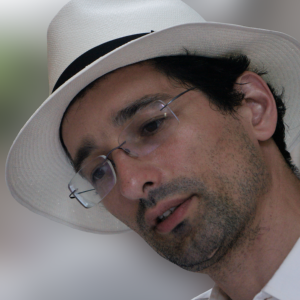| Time: | October 26, 2022, 4:00 p.m. (CEST) |
|---|---|
| Venue: | V7.01 Pfaffenwaldring 7 |
| Download as iCal: |
|
We are happy to welcoming you on site for the public Honorary Argyris Lecture of Gábor Csányi. Once a year, we award an Argyris Visiting Professorship to a leading personality in the field of simulation technology. With this award, we honor internationally renowned scientists from Germany and abroad, who are outstanding representatives of their disciplines in the field of simulation technology.
First principles molecular dynamics on a large scale
Over the past decade a revolution has taken place in how we do large scale molecular dynamics. While previously first principles accuracy was solely the purview of explicit, and very expensive, electronic structure methods such as density functional theory, the new approaches have allowed the extension of highly accurate, first principles simulations to the atomic scale, where electrons are not treated explicitly any more, and therefore hundreds of thousands of atoms can be simulated. These quantum mechanically accurate force fields and interatomic potentials are fitted to electronic structure data and at first used techniques inspired by those used in machine learning and artificial intelligence research: neural networks, kernel regression, etc. It is a quickly moving field, and - having learned key lessons about representation, symmetry and regularisation - there appears to be some semblance of convergence between the diverse methods, which now also include polynomial expansions carried to high dimension.
Gábor Csányi
Gábor Csányi, Professor of Molecular Modelling at the University of Cambridge, is an expert in atomistic simulation, particularly in multi-scale modelling that couples quantum mechanics to larger length scales. He is currently engaged in applying machine learning and other data intensive techniques to physics, chemistry and material science and in particular to the problem of deriving force fields (interatomic potentials) from ab initio electronic structure data. Gábor is also interested in statistical problems in molecular dynamics, e.g. in enhanced sampling algorithms that can be used to explore the global configuration space of materials and molecules. He contributes to the running of the Lennard-Jones Center in Cambridge which brings together modellers who work on the atomic scale.


